These achievements align directly with GWPO’s Global Transformation Agenda (GTA) launched in February, which seeks to mobilise USD 15 billion in climate-resilient water investments by 2030, including USD 500 million to be leveraged for GWP partners in collaboration with G20 members, Development Banks, Climate Funds, and other international partners. The AU-AIP GCF Readiness programme is moving beyond policy dialogue to actionable investment and accreditation pathways.
RECENT COUNTRY MILESTONES
July – Malawi & Zambia:
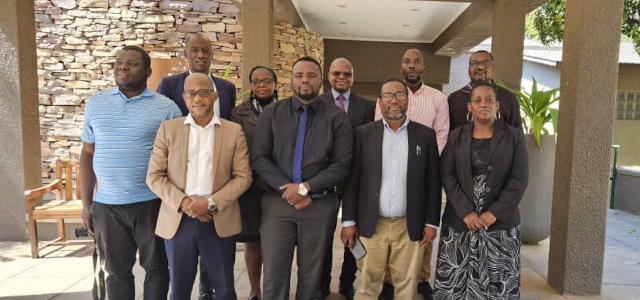
Five nominated Direct Access Entities (DAEs) in Malawi were trained in pathways to the Green Climate Fund accreditation, accreditation requirements, the accreditation portal and documentation, post-accreditation operationalisation and fiduciary standards.
Zambia intensified efforts to operationalise its Zambia Water Investment Programme (ZIP), positioning it as a flagship pipeline for blended climate financing. Technical institutions explored accreditation pathways and investment structuring.
Late July to Early August – Mozambique:
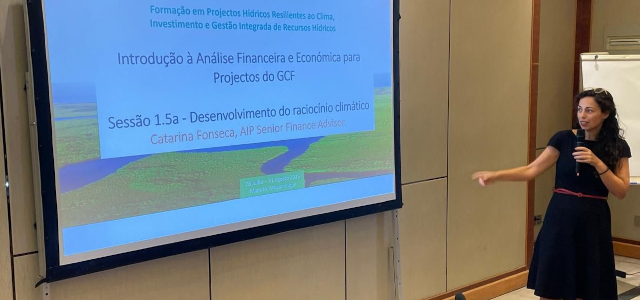
Mozambique held a national GCF training focused on institutional responsibilities in direct access and project development. Key ministries, environmental agencies and financial actors participated, reflecting growing political will toward sovereign-led climate finance mobilisation.
18–22 August – Eswatini and Central African Republic (CAR):
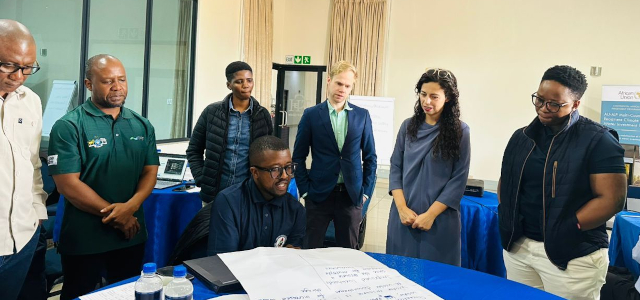
Eswatini hosted an intensive national training workshop, which brought together government actors, utilities, academic institutions, and NGOs to build alignment around climate investment programming.
During the same week, the Central African Republic confirmed the mobilisation of BGFIBank CAR to pursue GCF Direct Access Entity (DAE) accreditation — a breakthrough move toward enabling national ownership of climate finance.
25 August – Mali:
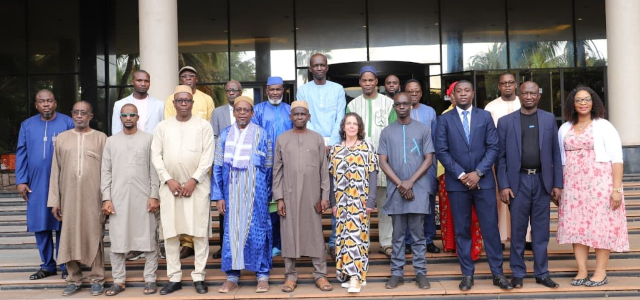
The Government of Mali launched the development of its national water investment programme under the AU-AIP framework, consolidating its GCF readiness efforts. Stakeholders agreed on critical next steps to strengthen programming and sector coordination.
15 August – African Regional Training in Cape Town (Ahead of AIP High-Level Summit):
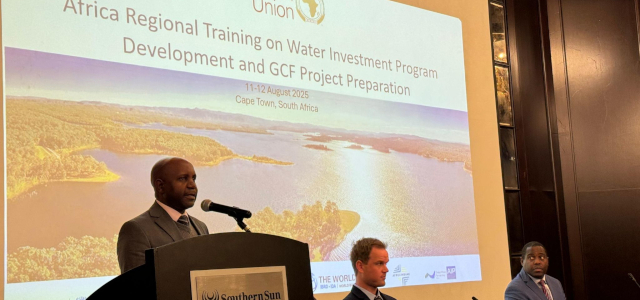
In a landmark event preceding the AIP High-Level Summit, GCF focal points from multiple countries convened to align on accreditation, investment preparation, and partnership mobilisation. This marked one of the clearest signs yet of continental convergence around structured climate finance access.
16–19 September – Burundi:
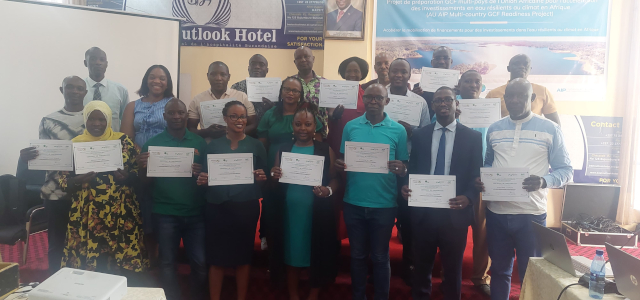
Burundi conducted a comprehensive National Strategic Training in Bujumbura, supported by GWPEA and the Burundi Country Water Partnership. The training, attended by ministries, private sector actors and civil society, helped define an implementation pathway for GCF accreditation and project pipeline development.
EMERGING THEMES: FROM AWARENESS TO STRUCTURED INVESTMENT READINESS
Across all milestones, three consistent trends are evident:
- Shift from project-based thinking to investment programming: Countries are now positioning national water investment programmes, such as ZIP (Zambia), as core vehicles for mobilising finance at scale.
- Acceleration of Direct Access pathways: Institutions like BGFIBank, CAR, and the five nominated Direct Access Entities in Malawi illustrate a growing appetite to localise climate finance governance rather than rely solely on multilateral intermediaries.
- Improved multi-stakeholder coordination: Engagements across ministries, central banks, utilities, academia and CSOs demonstrate that readiness is no longer confined to environment agencies alone.
POSITIONING AFRICA FOR CAPITAL ABSORPTION UNDER THE GLOBAL TRANSFORMATION AGENDA
As the Global Transformation Agenda seeks to mobilise USD 15 billion by 2030, the AU-AIP GCF Readiness Initiative is laying the institutional groundwork needed to de-risk capital deployment and signal bankability to financing partners such as the GCF, GEF, AfDB, World Bank, and G20 member states.
The initiative’s progress proves that African countries are not merely waiting for finance; they are actively building systems to receive, deploy, and govern it.
